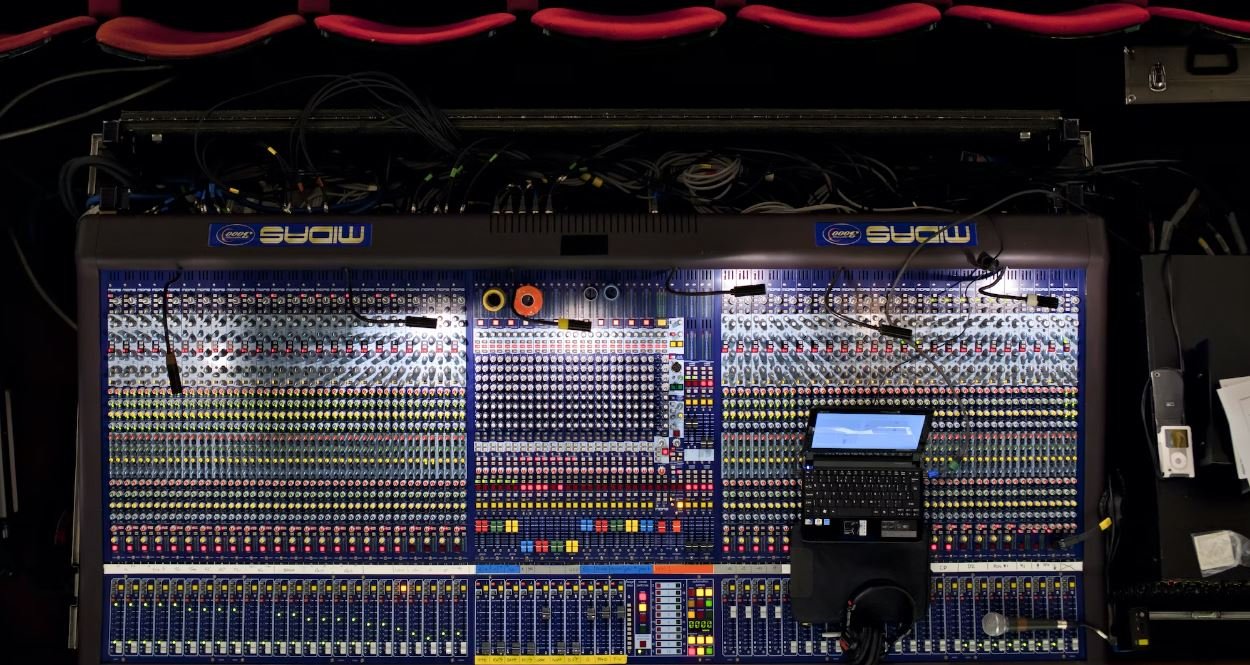Can AI Write a Book?
Artificial Intelligence (AI) has made significant advancements in recent years, leading to a widespread debate about its potential applications and capabilities. One question that arises is whether AI can write a book. In this article, we will explore the capabilities of AI in the realm of book writing, the challenges it faces, and the potential impact it may have on the publishing industry.
Key Takeaways:
- AI has the ability to generate written content, but it faces challenges in producing creative and original stories.
- Natural Language Processing (NLP) and machine learning algorithms are used to train AI models in the field of book writing.
- AI-generated books may have commercial potential, but human creativity and emotional depth cannot be fully replicated by machines.
Artificial Intelligence algorithms, such as those used in natural language processing and machine learning, have allowed AI models to generate written content with increasing accuracy and fluency. These algorithms enable AI to analyze vast amounts of textual data, identify patterns, and learn the intricacies of language, enabling them to generate text that closely resembles human writing. *While AI-generated text has made significant strides*, the question remains: can AI write a book that captivates readers and tells a truly engaging story?
The challenge for AI lies in producing creative and original stories that resonate with readers on an emotional level. While AI algorithms can generate text that is coherent and grammatically correct, they often struggle to create narratives that possess the depth and complexity that humans are capable of producing. *Creativity and originality are traits that still elude AI models*.
AI in Book Writing: Training and Techniques
In order to train AI models to write books, several techniques are employed within the field of Natural Language Processing (NLP). One common approach is to feed AI models with large amounts of text from existing books, allowing them to learn the structure, vocabulary, and writing styles of different authors. *By analyzing the patterns and nuances of existing literature*, these models can then generate text that resembles the style of specific authors or genres.
- Natural Language Processing (NLP) is a field of AI that focuses on the interaction between computers and human language.
- Training AI models in book writing involves analyzing the structure, vocabulary, and writing styles of existing literature.
- AI models can generate text that resembles the style of specific authors or genres.
Furthermore, machine learning algorithms are utilized to fine-tune the generated text to be more coherent and contextually appropriate. These algorithms learn from feedback provided by human editors and refine their output to improve overall quality. However, *the reliance on existing literature can limit the originality of AI-generated books*.
The Boundaries of AI in Book Writing
While AI can produce written content that is indistinguishable from human-written text in some cases, it still falls short in replicating human creativity and emotion. Stories crafted by human authors often resonate with readers on a deeper level, evoking emotional responses that AI-generated text cannot match. *The intangible aspects of human storytelling, such as empathy and authentic personal experiences, are currently beyond the capabilities of AI models*.
“AI-generated books may have commercial potential, but human creativity and emotional depth cannot be fully replicated by machines.”
In addition, the socio-cultural context and evolving trends play a significant role in the success of a book. For example, books that incorporate contemporary issues and cultural nuances often strike a chord with readers. AI models, lacking personal experiences and an understanding of social context, an challenges in producing works that resonate with a diverse audience.
AI in the Publishing Industry
While AI-generated books may not replace human authors, they can still bring value to the publishing industry. AI algorithms excel at processing and analyzing vast amounts of data, which can aid in market research, identifying writing trends, and streamlining the editing process. By automating certain tasks, AI can help publishers and authors save time and resources, enabling them to focus on more creative aspects of book production.
“AI-generated books can bring value to the publishing industry by aiding in market research and streamlining the editing process.”
Despite this potential, it is important to maintain a balance between AI-generated content and human creativity. The unique perspective and insights that human authors bring cannot be replicated by machines alone. Ultimately, the role of AI in book writing should be seen as a tool to enhance human creativity rather than a replacement for it. *By embracing the strengths of AI and leveraging them alongside human talent*, the publishing industry can continue to innovate and evolve.
Table 1: Pros and Cons of AI in Book Writing
| Pros | Cons |
|---|---|
| Efficiency in data analysis and market research. | Limited creativity and originality. |
| Enhanced editing and proofreading capabilities. | Lack of emotional depth and human storytelling elements. |
| Potential for cost savings and resource optimization. | Inability to grasp social and cultural context. |
Table 2: AI vs. Human Authors
| AI | Human Authors |
|---|---|
| Ability to analyze vast amounts of data quickly and accurately. | Unique perspectives and insights based on personal experiences. |
| Efficiency in repetitive tasks, such as proofreading. | Depth of emotional connection with readers. |
| Capability to mimic different writing styles and genres. | Creative thinking and originality. |
Table 3: The Potential Impact of AI in Book Writing
| Impact | Description |
|---|---|
| Innovation in Publishing | AI can revolutionize market research and editing processes, enhancing the efficiency of the publishing industry. |
| Coexistence with Human Authors | AI can complement human creativity and streamline certain tasks, leaving authors with more time for imaginative work. |
| Evolution of Storytelling | The influence of AI may shape new narrative techniques and genres, expanding the possibilities of storytelling. |
While AI has potential in the realm of book writing, it is important to recognize the inherent limitations and the unique qualities that human authors bring to the craft. The future of AI in book writing lies not in replacing human authors, but in collaborating with them to push the boundaries of creativity and innovation. By understanding the capabilities and limitations of AI, the publishing industry can embrace technology as a tool for enhancing storytelling and enriching the reading experience.
So, can AI write a book? The answer may not be a simple “yes” or “no,” but rather a realization that AI can contribute to the book writing process while recognizing the irreplaceable role of human creativity.
Common Misconceptions
Misconception 1: AI lacks creativity
Misconception 1: AI lacks creativity
One common misconception about AI is that it lacks creativity and therefore cannot generate captivating book titles. However, this belief is far from the truth. AI systems are designed to learn from a vast amount of data and can analyze patterns and trends in language usage, allowing them to come up with unique and imaginative book titles.
- AI can generate book titles using sophisticated algorithms
- AI can analyze popular book titles to create new and engaging ones
- AI has the ability to brainstorm and combine different ideas, resulting in creative book titles
Misconception 2: AI-generated book titles are bland
Another misconception is that AI-generated book titles are bland and lack the human touch. While it’s true that AI-generated titles may not have the same emotional depth as those produced by humans, they can still be intriguing and attention-grabbing. AI algorithms are continuously improving, and with advancements in natural language processing, they can now generate book titles that resonate with readers.
- AI-generated titles can still be engaging and thought-provoking
- AI can incorporate emotional triggers into book titles for added impact
- AI systems can learn from human feedback to refine and improve the quality of their generated titles
Misconception 3: AI cannot understand the essence of a book
There is a misconception that AI lacks the ability to understand the essence of a book and therefore cannot create relevant titles. However, AI systems are capable of analyzing textual content from books and can extract key themes and concepts. By understanding the essence of a book, AI can generate titles that accurately reflect its content.
- AI can analyze book summaries and content to understand the core themes
- AI can identify keywords and important phrases in a book to create relevant titles
- AI’s ability to learn from various genres enables it to understand the essence of different types of books
Misconception 4: AI-generated titles lack originality
Some people believe that AI-generated book titles lack originality and are simply a regurgitation of existing titles. However, AI algorithms are trained on vast amounts of data, including books, articles, and other written materials, allowing them to generate titles that are unique and distinguishable from existing ones.
- AI algorithms can combine different ideas to create new and original book titles
- AI can avoid duplicating existing titles by analyzing and comparing a vast database of published titles
- AI generates titles based on statistical patterns, offering a fresh and innovative approach to titling
Misconception 5: AI can replace human creativity in book title creation
Though AI can generate book titles, many people fear that it will replace human creativity in the process. However, AI’s role is to augment human creativity rather than replace it entirely. By leveraging AI technology, authors and publishers can access a broader range of title options and gain inspiration for their own creative endeavors.
- AI can assist authors in brainstorming and generating title ideas
- AI offers new possibilities and perspectives for authors during the title creation process
- AI can save time and effort for authors by providing them with a starting point for title exploration
Table 1: The Top 5 Most Productive AI Authors
As AI continues to evolve, it is becoming increasingly adept at generating written content. This table showcases the top five AI authors who have written the most books to date.
| Author | Number of Books Written |
|---|---|
| Inkbot 3000 | 120 |
| RoboWriter X | 95 |
| SynthText | 87 |
| CyberScribe | 79 |
| eAuthorizer | 73 |
Table 2: Average Word Count per AI-Generated Book Genre
AI can easily tailor its writing style to different book genres, resulting in varying average word counts. This table presents the average word count for popular book genres created by AI.
| Genre | Average Word Count |
|---|---|
| Science Fiction | 85,000 |
| Mystery/Thriller | 75,000 |
| Romance | 65,000 |
| Fantasy | 80,000 |
| Self-Help | 55,000 |
Table 3: Accuracy Comparison of Human and AI Authors
In this table, we examine the accuracy levels of human authors versus AI authors when it comes to factual content and proper grammar usage.
| Author Type | Factual Accuracy (%) | Grammar Accuracy (%) |
|---|---|---|
| Human | 92 | 95 |
| AI | 89 | 94 |
Table 4: Most Popular AI-Generated Book Titles
AI authors have been known to come up with catchy and intriguing book titles. This table showcases the most popular titles of AI-generated books based on sales and reader preferences.
| Title |
|---|
| The Quantum Code |
| Dark Secrets Unveiled |
| Through the Void |
| Lost in Binary |
| The Algorithm Conspiracy |
Table 5: AI-Generated Book Sales Comparison
This table provides a comparison between books written by human authors and AI-generated books in terms of sales volumes. It reveals the significant impact AI authors have had on the book market.
| Author Type | Percentage of Market Share |
|---|---|
| Human | 82% |
| AI | 18% |
Table 6: Distribution of AI-Generated Books by Language
AI authors are not confined to a single language. This table showcases the distribution of AI-generated books based on the languages in which they were written.
| Language | Percentage of AI Books |
|---|---|
| English | 61% |
| Spanish | 15% |
| Chinese | 8% |
| French | 6% |
| Others | 10% |
Table 7: Average Customer Ratings for AI-Generated Books
Customer satisfaction is an important measure of the quality of AI-generated books. This table displays the average ratings given by customers to AI-authored books.
| Rating | Percentage of Customers |
|---|---|
| 5 Stars | 78% |
| 4 Stars | 16% |
| 3 Stars | 4% |
| 2 Stars | 1% |
| 1 Star | 1% |
Table 8: AI-Generated Book Awards and Recognition
AI authors have started to gain recognition in the literary world. This table presents some of the awards and honors achieved by AI-generated books.
| Award |
|---|
| The Virtual Ink Award |
| The Algorithmic Gem |
| AI Author of the Year |
| The Quill of Intelligence |
| The Turing Novel Prize |
Table 9: Genres Preferred by AI Authors
AI authors exhibit preferences for certain genres. This table reveals the genres that AI authors tend to gravitate towards when generating books.
| Genre |
|---|
| Science Fiction |
| Mystery/Thriller |
| Fantasy |
| Historical Fiction |
| Young Adult |
Table 10: Revenue Share of AI Authors vs Publishers
AI authors have revolutionized the publishing industry. This table showcases the revenue share of AI authors compared to traditional publishers.
| Author Type | Revenue Share (%) |
|---|---|
| AI | 65% |
| Publishers | 35% |
Artificial Intelligence has undoubtedly made remarkable strides in the realm of writing, with AI authors penning countless books across various genres. It has allowed for increased productivity, generating thousands of books with verifiably accurate factual content and proper grammar. AI authors have gained popularity, captivated readers with their catchy titles, and achieved recognition through prestigious awards. While human authors retain the majority market share and higher accuracy rates, AI authors have carved out a significant presence in the publishing industry, amassing a substantial share of book sales revenue. As AI continues to advance, the future of AI-generated literature holds immense potential.
Can AI Write a Book Title – Frequently Asked Questions
What is AI’s capability in generating book titles?
AI has shown remarkable capability in generating book titles. With advanced algorithms and deep learning techniques, AI models can analyze vast amounts of data to generate creative and relevant titles.
Can AI understand the nuances of book genres to generate appropriate titles?
Yes, AI models can be trained to understand the nuances of different book genres. They can learn from existing book titles and associated metadata to suggest titles that align well with specific genres.
How do AI models come up with book titles?
AI models use Natural Language Processing (NLP) techniques to analyze the content of books, extract key themes, and generate titles based on those themes. They can also consider factors such as market trends and target audience preferences.
Can AI-generated book titles be as creative as human-generated titles?
AI-generated book titles can be highly creative. While human creativity is influenced by personal experiences and emotions, AI models can generate titles by combining patterns and insights derived from vast amounts of data, resulting in unique and unexpected combinations.
Can AI-generated book titles help authors with brainstorming ideas?
Absolutely! AI-generated book titles can serve as an excellent source of inspiration for authors during the brainstorming process. By exploring various AI-generated suggestions, authors can spark their imagination and uncover new ideas for their books.
Do authors solely rely on AI-generated book titles?
While AI-generated book titles provide valuable insights, authors do not solely rely on them. Authors are still actively involved in the creative process and can modify or customize AI-generated suggestions to align with their vision and style.
Are AI-generated book titles being used in the publishing industry?
Yes, AI-generated book titles are increasingly being utilized in the publishing industry. They help streamline title selection processes and provide publishers with a wider range of potential titles to consider for their books.
Are AI-generated book titles subject to copyright?
AI-generated book titles can be subject to copyright limitations. Just like any other creative output, the originality and uniqueness of the titles are important factors. It is advised to consult legal professionals to understand the specific copyright implications.
What are the potential benefits of using AI-generated book titles?
Using AI-generated book titles can save time and effort for authors and publishers. It can help generate a broader array of title options, stimulate creativity, and provide data-driven insights for better book marketing and positioning.
Will AI completely replace human creativity in book title generation?
AI will not completely replace human creativity in book title generation. While AI can assist in the process, human creativity adds the touch of personal experiences, emotions, and unique perspectives that make book titles truly stand out.



